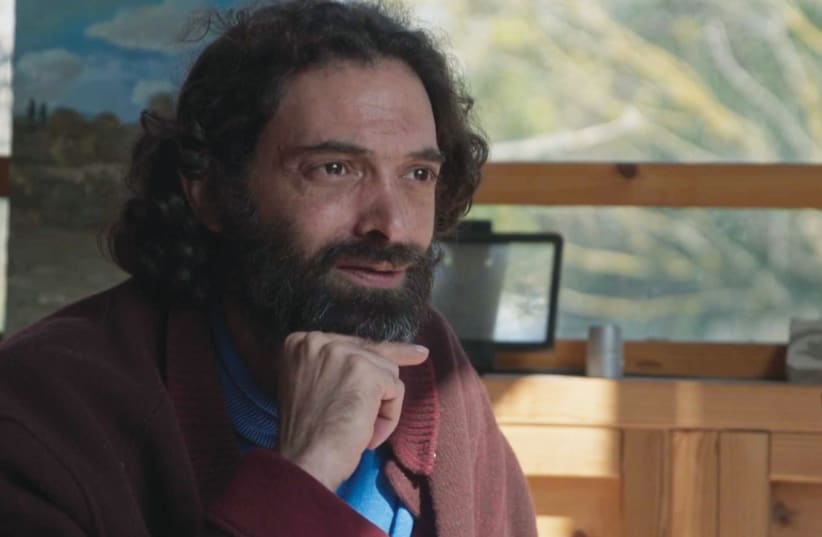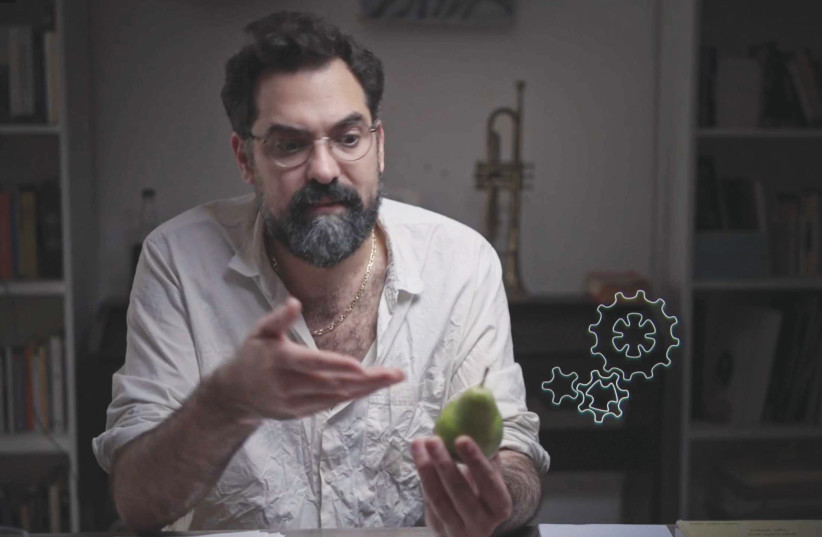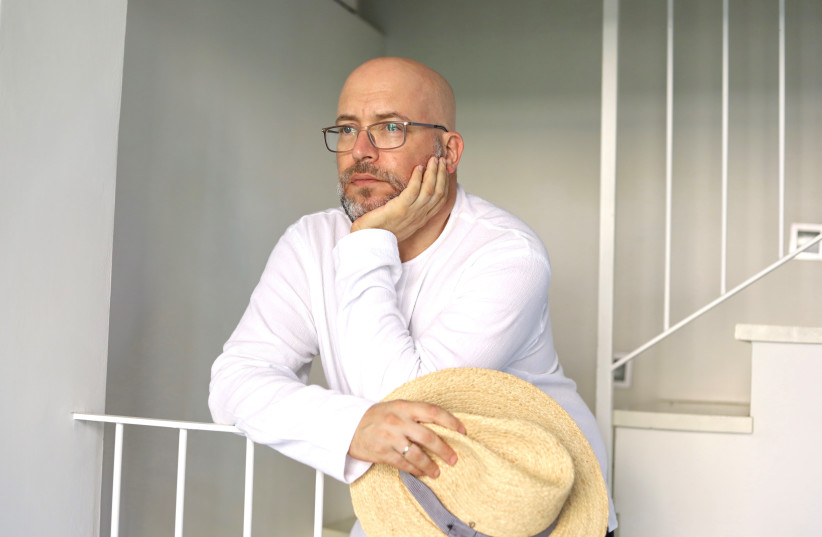It might surprise you to learn that the most engaging and enjoyable hour of Israeli television this year is Spinoza: 6 Reasons for the Excommunication of the Philosopher, a documentary about the life and work of the Jewish philosopher who revolutionized modern thought, which will air on KAN 11 on April 19 at 9:15 p.m. It will be available on the KAN website after the broadcast.
Whether you have a PhD in philosophy or only vaguely remember the achievements of Baruch Spinoza – whose questioning of the nature of divinity made him one of the foremost Enlightenment thinkers, and which drew the ire of the Jewish establishment – you will learn a great deal from this documentary and have fun watching it.
Spinoza’s director, David Ofek, and its producer, Yair Qedar (Karin Atedgi was also a producer), said in a recent interview that they found that making the documentary took them on a memorable journey to discover the essence of this formidable genius, whose influence is still strong more than four centuries after his death.
They learned first-hand just how strong when a leading rabbi in the Netherlands condemned Yitzhak Melamed, a professor of philosophy at Johns Hopkins University who was their principal guide to Spinoza in the film. Far from reconsidering the cherem, or ex-communication, that the rabbinical authorities in Amsterdam pronounced against Spinoza in 1656, when he was just 23, rabbis in the Netherlands today extended the cherem to Melamed and to the filmmakers.
When Melamed and the producers asked permission to film in the Portuguese synagogue in Amsterdam, they were told the request was “an unacceptable assault on our identity and heritage... [Melamed] is now declared persona non grata” in the Jewish community, as was anyone collaborating with him, including the filmmakers. The cherem – its causes and repercussions – is at the heart of the film, but being included in it took Ofek and Qedar by surprise and deepened their desire to understand Spinoza.
“The rabbi of the Jewish community in Amsterdam put us and Melamed under cherem... and when we all understood we were under cherem also, that gave a kind of underlining to the story,” said Ofek.
“The rabbi of the Jewish community in Amsterdam put us and Melamed under cherem... and when we all understood we were under cherem also, that gave a kind of underlining to the story.”
David Ofek
KAN 11's big project swings
Spinoza is the 17th film in the ambitious project, The Hebrews, undertaken for KAN 11 by Kedar, to create documentaries about poets and writers who were seminal in Jewish culture throughout history. The Hebrews includes documentaries about Amos Oz, A. B. Yehoshua, Avraham Sutskever, and many others. Qedar turned to Ofek, who has had a distinguished career as both a director of feature films such as The Barbecue People (Ha Mangalistim) and documentaries such as Melanoma My Love, to helm the project.
THE MOVIE delves deeply into the story of the philosopher’s life and attempts to present the essence of his work through commentary, historical research, and visual representations. The latter include animations by Erez Gavish, the head of the Visual Communication Department at the Bezalel Academy of Art and Design, and artworks inspired by nature by Jerusalem-based contemporary artist, Itamar Mendes Flohr, who turned out to be a descendant of Spinoza.
Ofek explained the decision to use visuals to illustrate the philosophical concepts. “To combine cinema and philosophy is a mission impossible... Unusual challenges demand unusual solutions.” Of course, they turned to many philosophy scholars and historians as well, and in addition to Melamed, these included Dr. Jeremy Fogel, Prof. Irene Zwiep, Dr. Noa Naaman Zauderer, Paul Mendes-Flohr, Prof. Yosef Kaplan, and many others.
The historical research provides as many surprises as the visuals. They were able to film a death mask believed to be of Spinoza that is kept at Columbia University. They also unearthed school records of Spinoza – with his name crossed out – and learned that he had asked to be released from a family debt, which some historians feel may have alienated the Jewish establishment and contributed to their decision to pronounce the cherem.
A vivid portrait emerges of the 17th-century Sephardic Jewish community in Amsterdam, which was coming back to life after the expulsion and persecution of Jews from Portugal. The filmmakers learned that a group of descendants of black slaves now make an annual pilgrimage to the Jewish cemetery in Amsterdam, because the grave of a slave once owned by a Portuguese Jewish family is there, and filmed this event.
KAN 11 requested that the filmmakers keep the movie under an hour, which was difficult and naturally there were interesting moments that had to be left on the cutting-room floor, but Ofek feels that the discipline imposed by the length restriction was beneficial. “I think ultimately, that cutting it down to this length works,” said Ofek.
While Qedar thought that he was going much further back into history to tell Spinoza’s story than he had in most of The Hebrews series, he and Ofek learned, as they worked on the project, that Spinoza is even more pertinent today than they had initially thought.
Said Ofek, “I didn’t realize how relevant his work is to the reality of today, the struggle between religious conservatism and forces of free thought and liberalism, and when Yitzhak got the letter from the Portuguese community rabbi and that got news coverage around the world, it showed the continuing tension between religion and philosophy.”
Qedar noted, “There’s a feeling we made a movie about something that is furthest from our life today but now that it is being released, we are in the middle of a struggle for how our society is going to be. We wanted to make a project about boycotts – religious, sociological, and cultural – and through Spinoza we could talk about that, about the conflict between religious authorities and those who question, and it turns out to be the most news-y of any of the Hebrews films.”


